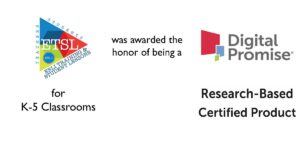Think of something that you are not adept at, something that you can muddle through but it isn’t easy or enjoyable. For me, technology and tennis come to mind. I can do the basics on the computer but am sure I could even do those more efficiently. If something goes awry when I’m working with technology, even something minor, panic sets in because I don’t know what to do and my anxiety prevents me from even thinking it through.
For example, last week I was on a pre-podcast Zoom call. Our conversation led to discussion about a short video pertaining to what we were talking about and I offered to show it. I shared my screen, then fumbled around trying to figure out where to go and remember where to find the video. The longer I fumbled, the more stressed I became. Eventually, the video was found and shown but the experience left me feeling embarrassed. As for tennis, who thinks that is fun?? I sometimes hit the ball over the entire fence and rarely between the intended lines. As with pretty much everything, the people who think that is fun are the people who have been taught how to play tennis, have been guided as they practice, and do it well.
When teaching David Chalk, the 62 year old featured in our Millionaire Who Struggled to Read and Write webinar, was learning to read he casually said, “I can’t understand why anyone would think reading is fun.” I was taken aback as, from my perspective, reading is one of the greatest joys in life. The difference: I am an excellent reader and David was not. To him, it was torture and to be avoided at all cost. A bit over halfway through his instruction, David exclaimed, ‘Now I get it! I can see why people think reading is enjoyable. When you understand what is going on, it’s like watching a movie in your mind.” Bingo!
David told me he was perplexed at why the benefits of being literate were always framed around the benefits to society: better job, higher graduation rates, lower incarcerations, improved employability. He would like to see the benefits measured in how literacy benefits the person who is or especially becomes highly literate: more inner peace, improved self-worth, increased happiness, amplified productivity.
To the millions who struggle with reading, spelling, and writing, they find the experience of illiteracy or sub-literacy ranging between frustrating and torturous. For me, I can avoid tennis completely. For the most part, it is fairly easy for me to stick within my comfort zone with technology. For those with low-level literacy, they are marinating in and surrounded by literacy expectations all the time: in school, at work, and throughout life. They have to learn quickly how to camouflage their difficulties as a means of self-preservation and survival. Internally they are screaming but on the outside they are maneuvering through life to hide their shame-based secret.
Can you imagine the amount of energy and forward thinking maneuvering the mine field of lacking literacy in a literate society requires? John Corcoran uses the term ‘Native Alien’ to describe the experience. You are native to this society but without proficient literacy you are an alien, on the outside looking in and cut off from many benefits in life that literate society enjoy and often take for granted.
Children and adults living as a native alien are experts at hiding their difficulties in ways that do not appear to have much to do with reading or spelling. What might this look like? Below are some traits and examples that ‘Native Aliens’ of all ages, those on the outside looking in, have described how they try to cope.
In school:
- Illness
- Children asked to do what they aren’t capable of doing or doing well, especially in elementary school, will get frequent headaches and stomachaches.
- They often end up in the office or even going home.
- While they really do feel ill when faced with these tasks, this tactic also gets them away from the threat of having to do what they don’t know how to do or revealing to their classmates their challenges.
- Avoidance
- Losing homework or not ever turning it in
- Requesting frequent bathroom breaks
- Becoming an elective mute (David Chalk did this for more than a year)
- Behavior problems
- Hitting the child next to you, which gets you a trip to the principal, a timeout in the hall or detention room, or some other consequence that removes you from doing work you aren’t good at or able to do
- Disrupting the class, which stops instruction and often also gets you removed from the class
- Bullying and intimidating the teacher so they won’t be called on to read or perform
- Attention difficulties
- Being asked to read, or write, independently when you are not able to do so leaved a child focusing on other things
- When instruction does not make sense it is difficult to pay attention
- It is easier to daydream or look out the window than focus on what is happening in the classroom if you are not good at it
- Fighting
- Protecting your secret is important
- When threatened by being bullied or teased about reading difficulties, children often lash out at the perpetrator
- Withdrawal
- Turning in and avoiding interaction is a protective strategy
- Answering quietly can lead to no longer being called on
- Avoiding asking questions or calling attention to yourself is a way to fade into the woodwork and not be noticed
- Anxiety
- Timers with reading or testing that lead to panic
- Shaking when asked to read to the teacher or in front of any students
- Fidgeting and distracting
- Anger
- Exploding in situations that may expose their literacy challenges publicly
- Lashing out at teachers and fellow students even outside of reading, spelling, and writing situations
- Refusal to do the work or task
- John Corcoran shared with me just last week that there were oral spelling tests every Wednesday in elementary school. Whenever he was called on, he would stand up and silently stare at the teacher. Eventually, he said, the teacher would move on to the next student. Can you imagine??
- Diversion
- Being a class clown gets attention and diverts from the task at hand
- Making fun of yourself and your reading and spelling difficulties before someone else does it
- Diverting keeps a student in the good graces of the teacher as opposed to acting out
- Downplaying their reading and spelling difficulties as no big deal because that is just the way it is
- Illegible handwriting
- No one can tell if there are spelling mistakes
- Lack of comprehension through their written responses is camouflaged
- Cheating and lying
- Helps save face to a degree when possible
- They can at least have the appearance of reading
At home or in life (children and/or adults)
- Quitting
- If a club or organization requires writing or reading, those with low level literacy quit so as not to be humiliated
- Stays away from being asked to read in church or other community situations
- Backing out or avoiding playing games that require reading
- If a club or organization requires writing or reading, those with low level literacy quit so as not to be humiliated
- Doesn’t read restaurant menu
- Asks what the specials are or asks for the waitress recommendation
- Orders last and makes choices based on what others order
- Avoids reading
- I forgot my glasses
- I don’t like to read or reading isn’t my thing
- Has others make airline or hotel reservations, travel arrangements
- Asks to have prescription instruction or health information told or read to them
- Don’t read their birthday cards or send cards to others
- Avoids writing
- I’m not a good speller
- Won’t apply for a job
- David Chalk said that the only reason he became an entrepreneur was because he couldn’t fill out a job application.
- Won’t write checks
- Avoids filling out any paperwork
- Recently I visited a jail to talk about the education program they have instituted. They talked about a class that 400 of the inmates were enthusiastically interested in. When they passed out the application that asked them to write down some information and answer questions, only 30 people filled them out and attended the class.
- Doesn’t write notes or make lists
This list just scratches the surface in outlining some of the ways life is more challenging when one is illiterate or sub-literate. There are countless others. The energy output that is required to keep up the facade of pretending to be adequately literate when you are not is enormous.
The cure for whatever descriptor we use – low level literacy, illiteracy or sub-literacy, dyslexia, struggling to read, learning disabled – is the same: teaching the person to read. When we do that, all these challenges of the Native Alien are removed and they can become full participants in society.





